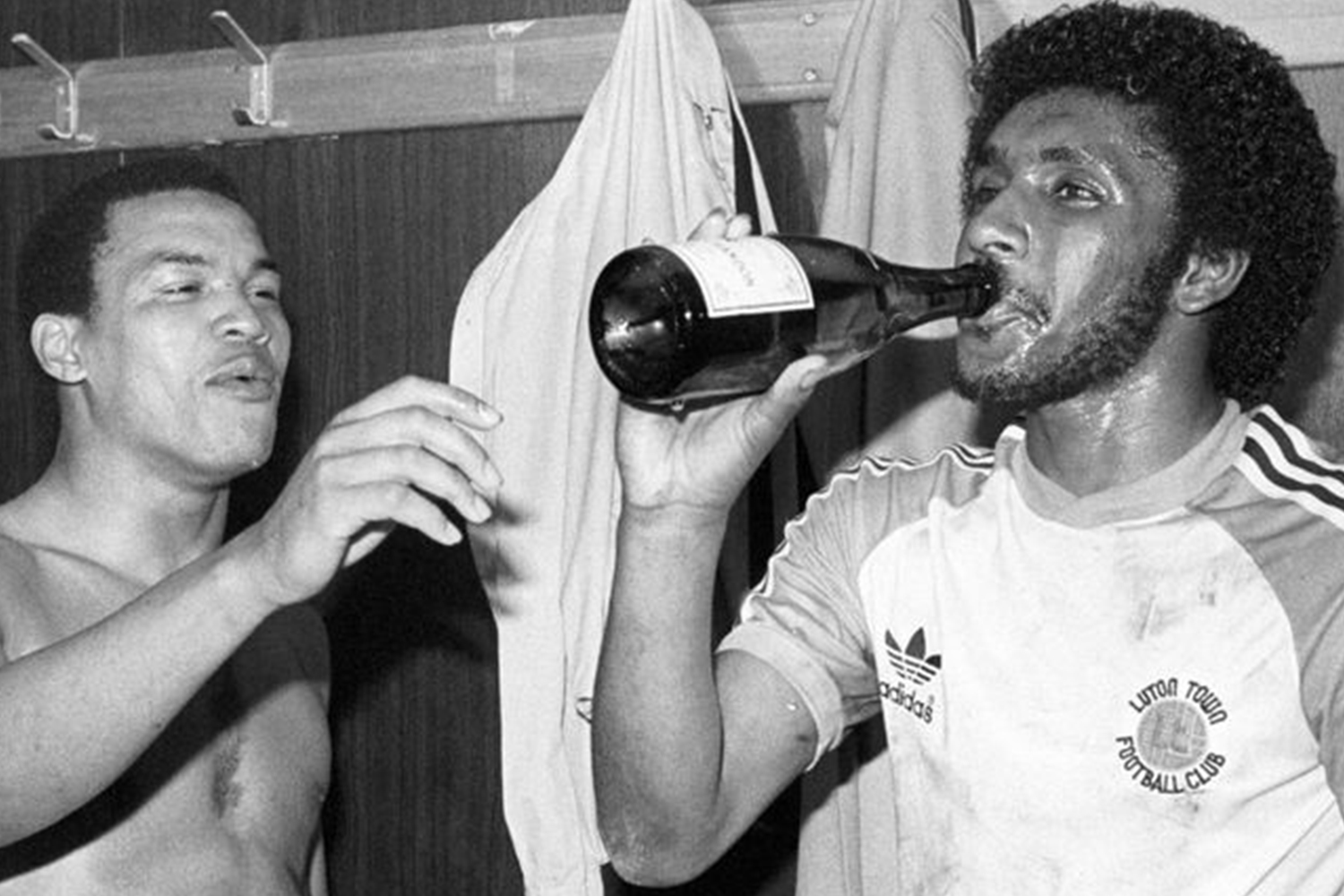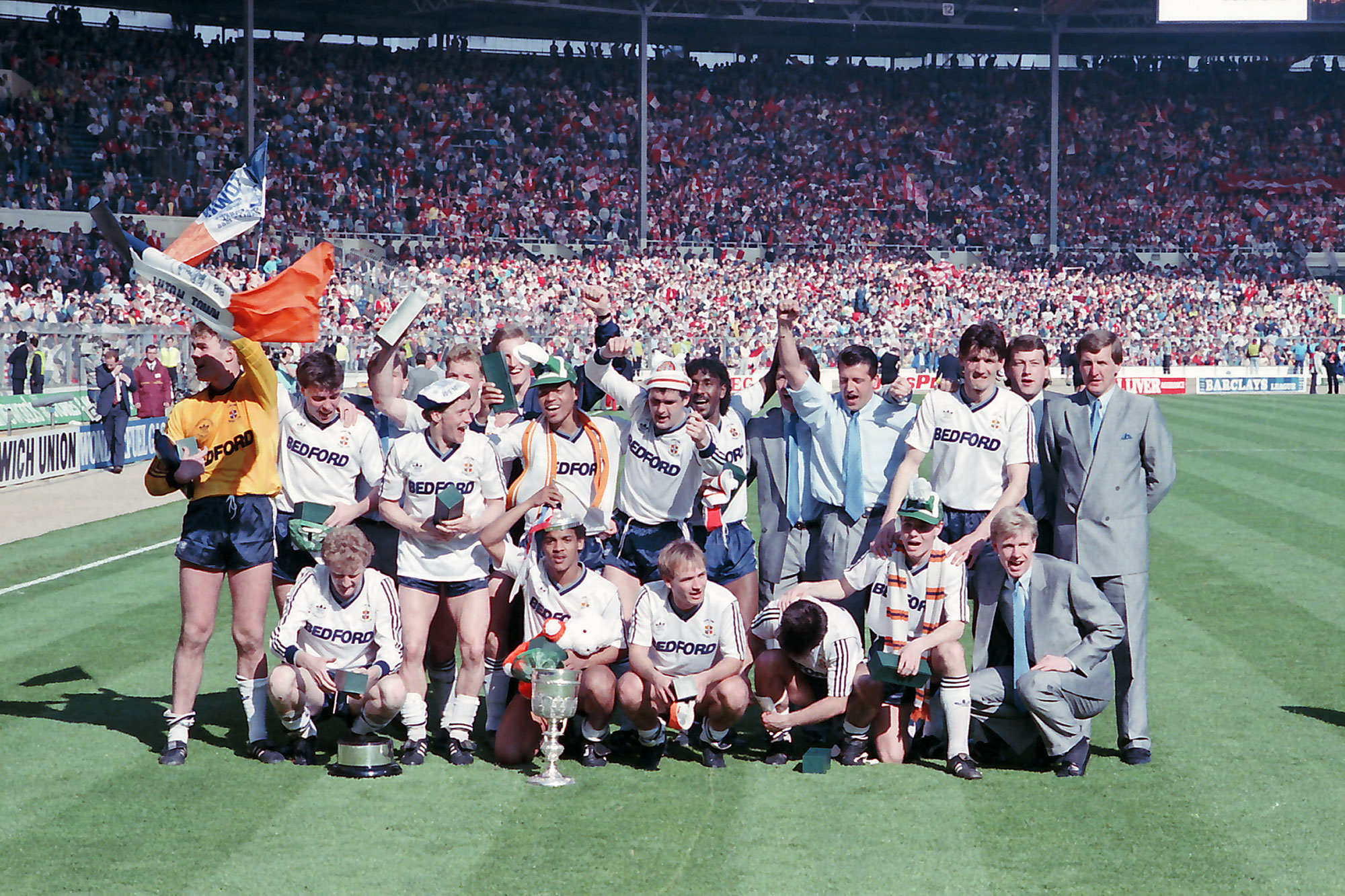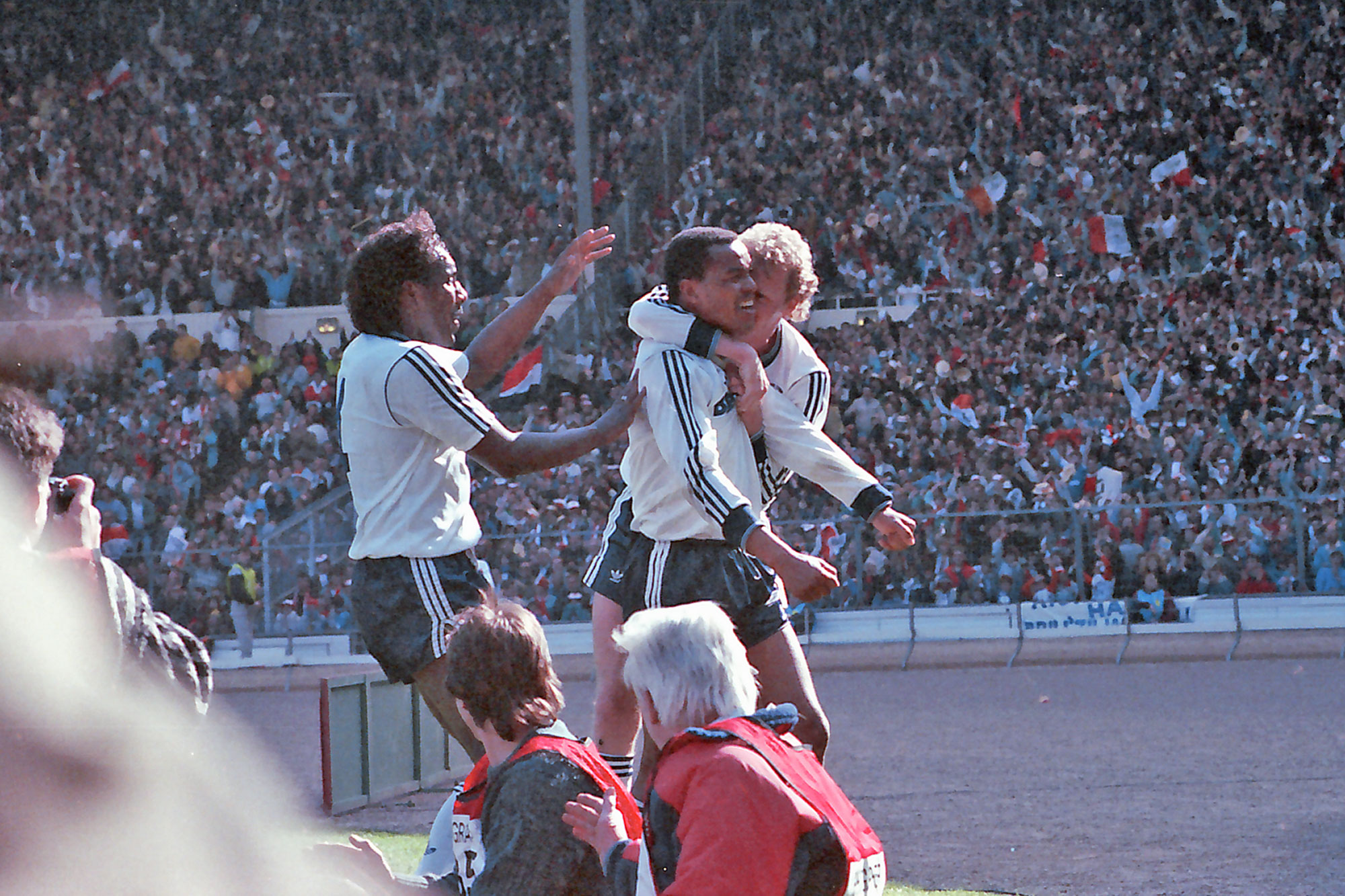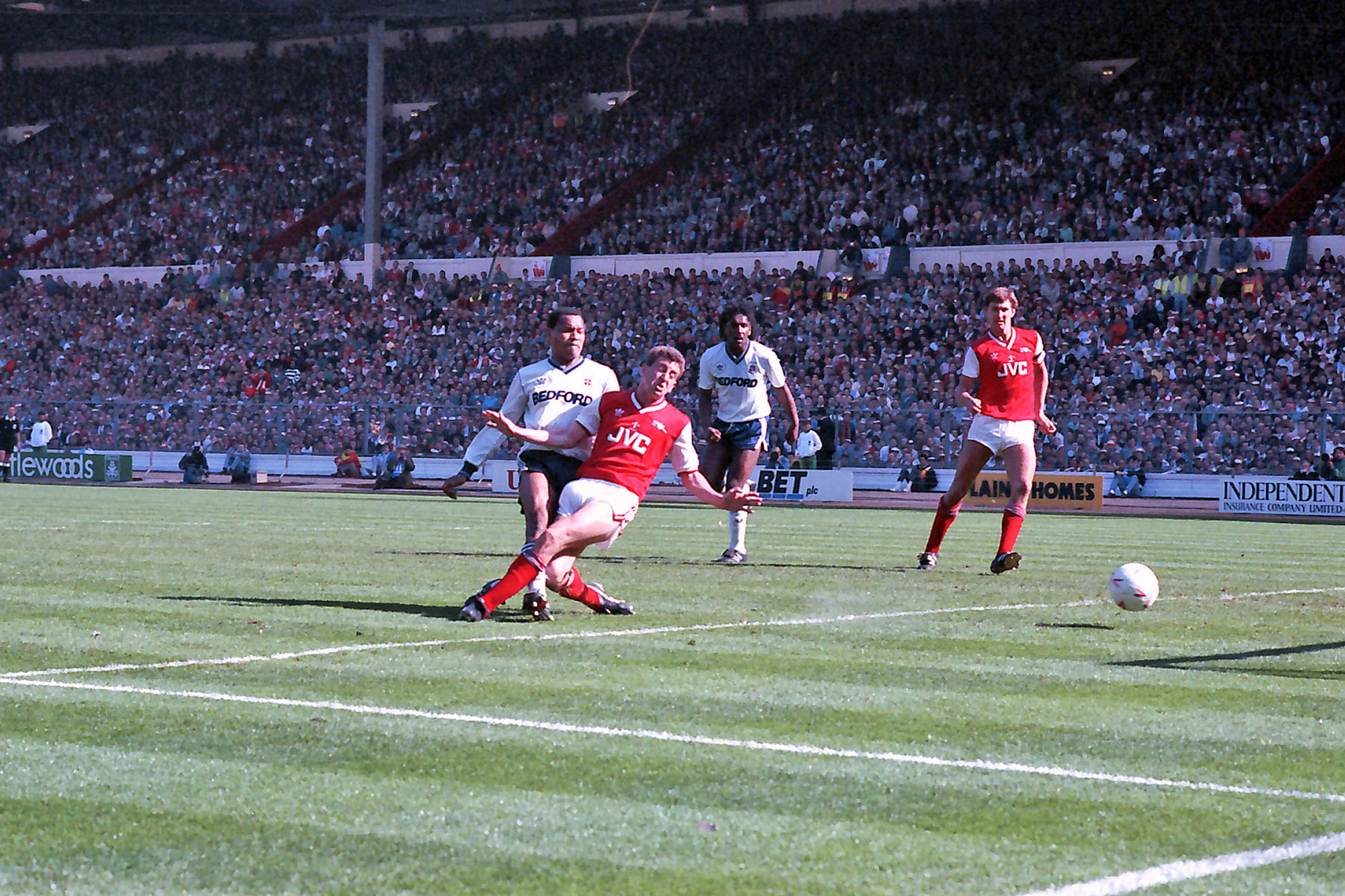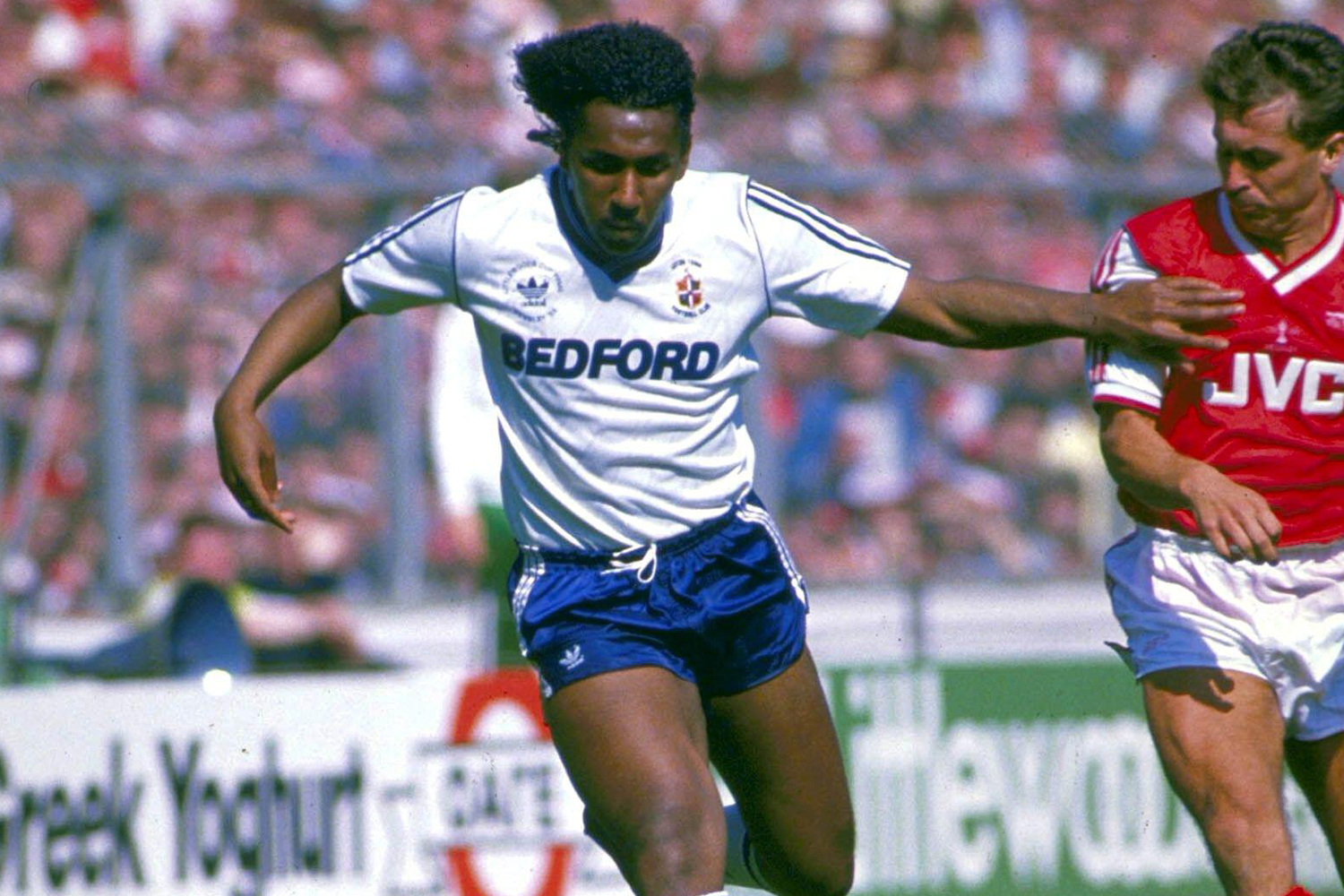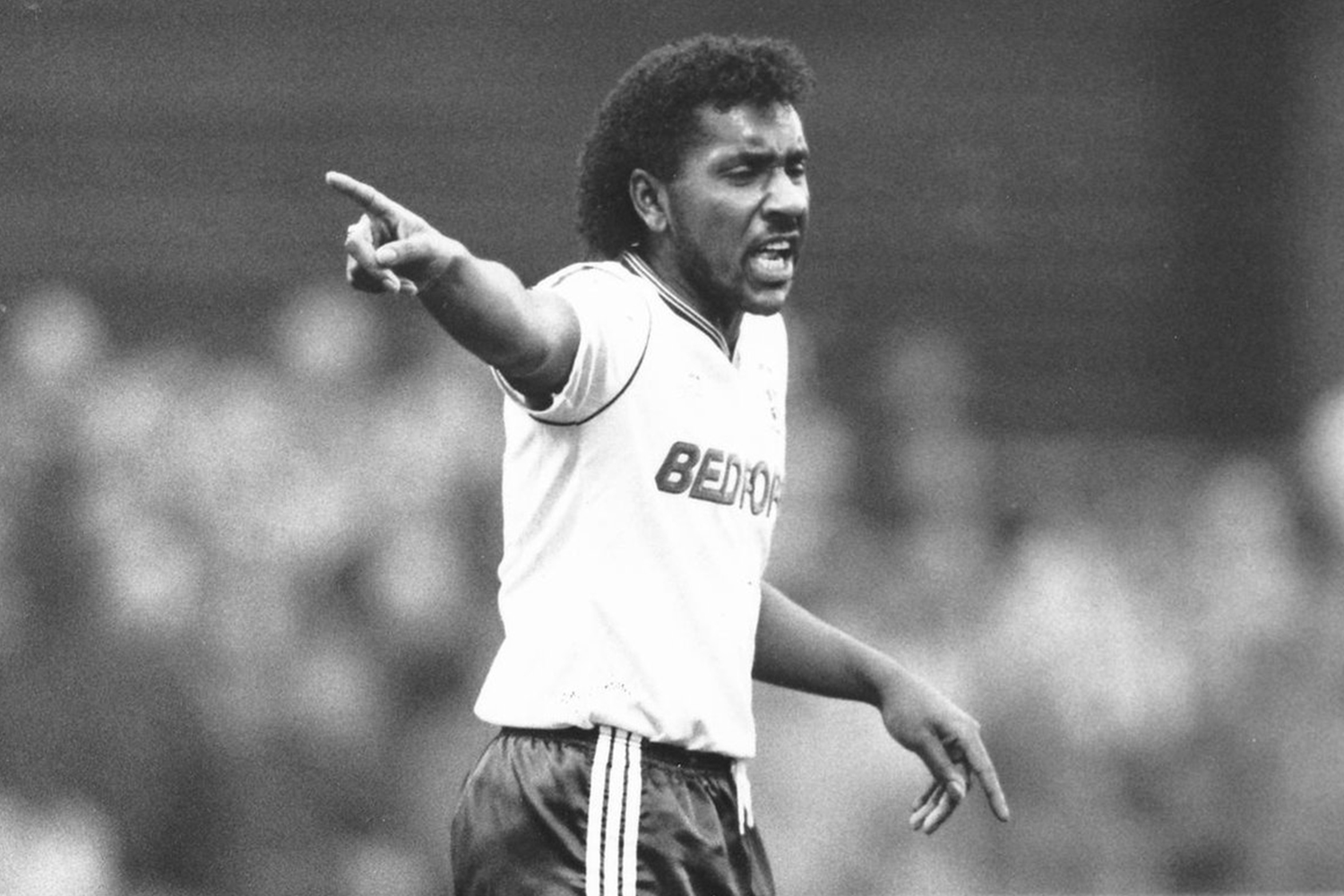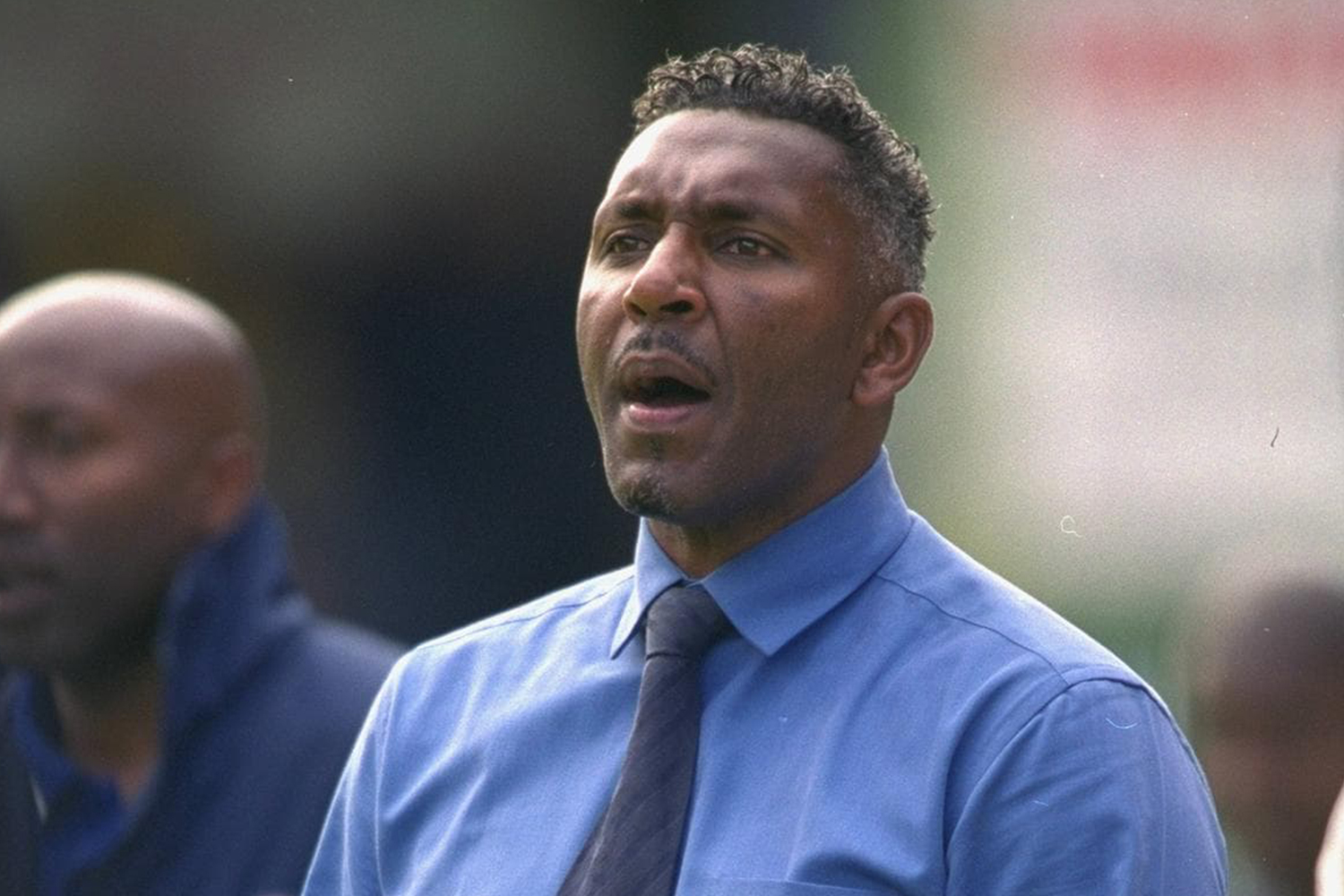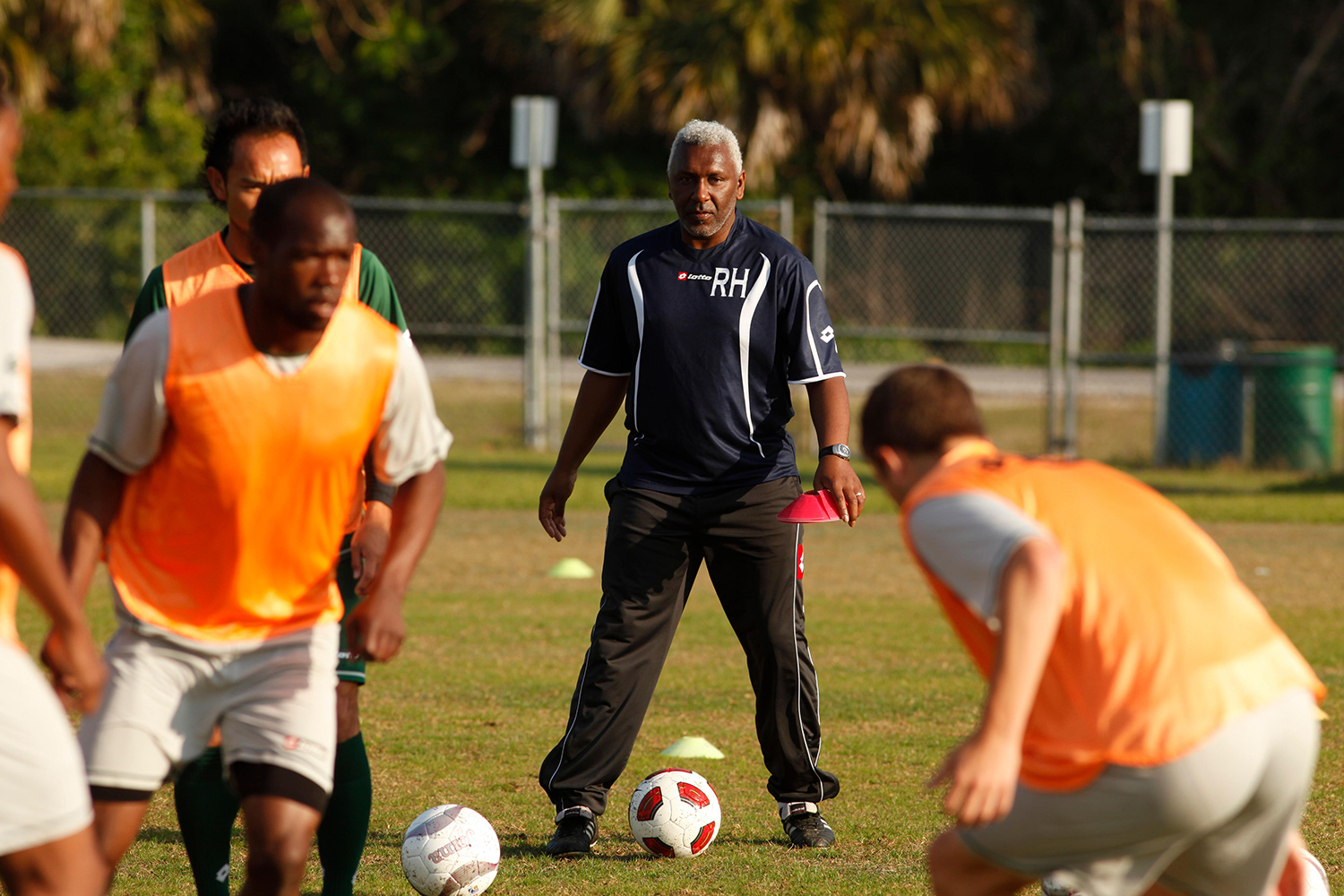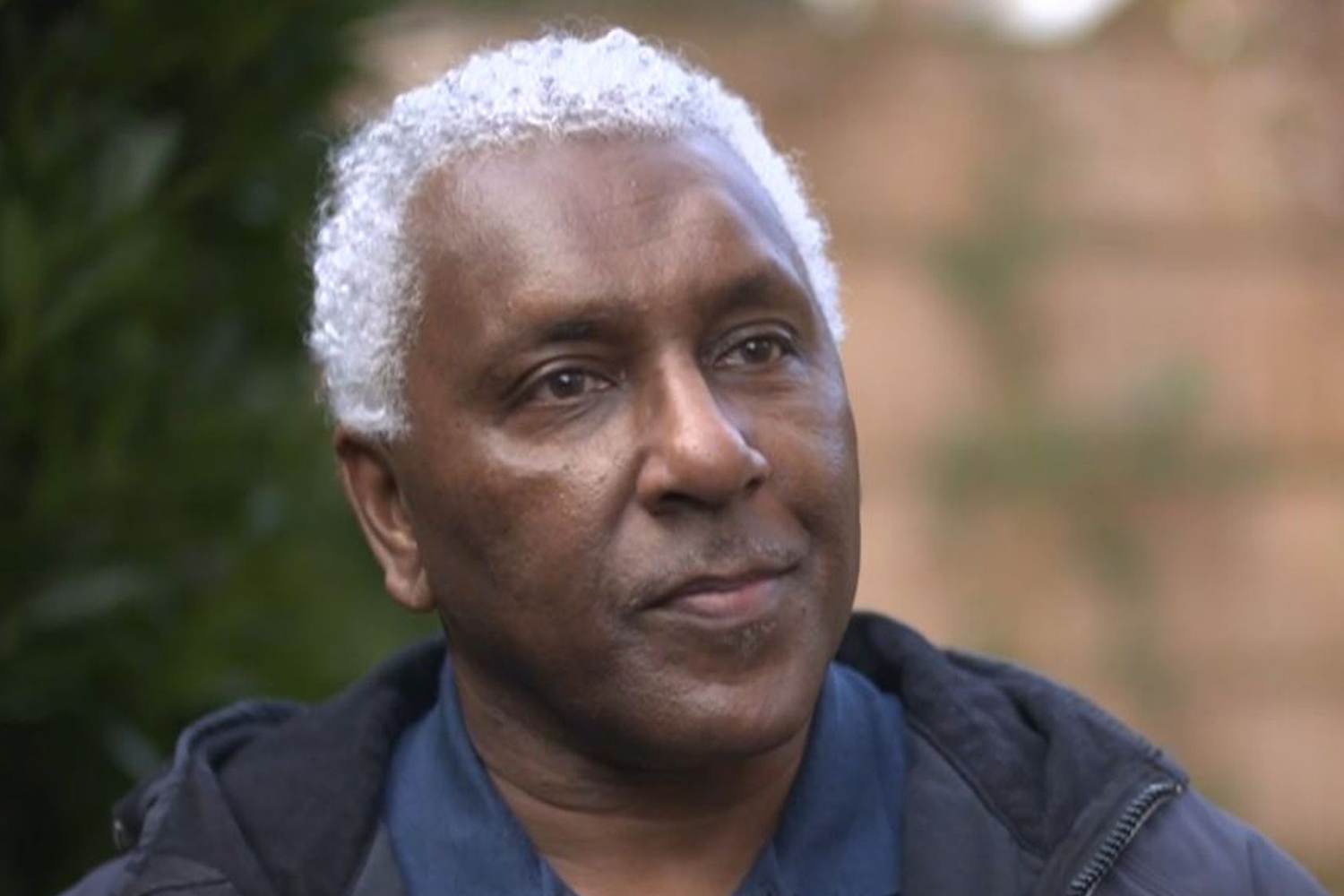From selling football programmes outside Wembley Stadium to having three England appearances to his name, Ricky Hill beat the odds to find success in the Beautiful Game.
EARLY LIFE
Those odds, as Ricky was informed by a primary school teacher after announcing his dreams of making it as a professional footballer, were just two out of 100. Aged seven at the time, he confidently reassured his teacher that he would indeed be one of the two.
Ricky’s parents, Doris and Joseph, were school peers in Jamaica, after his father’s family had relocated from the city of Lucknow in India. They moved to London in 1955 and Ricky was born four years later. He grew up in Brent and quickly claimed his allegiance to Leeds United, after being inspired by the talented and brave, Albert Johanneson.
Before rising to national prominence, Ricky Hill played for Learie Constantine Football Club — an all-back club named after famous Trinidadian-British cricketer, lawyer, and activist, Baron Learie Constantine. In 1975, while playing for Neasden’s John Kelly Boys Technology College in a Schools’ Cup, Ricky was spotted by then-Luton reserve boss David Pleat.
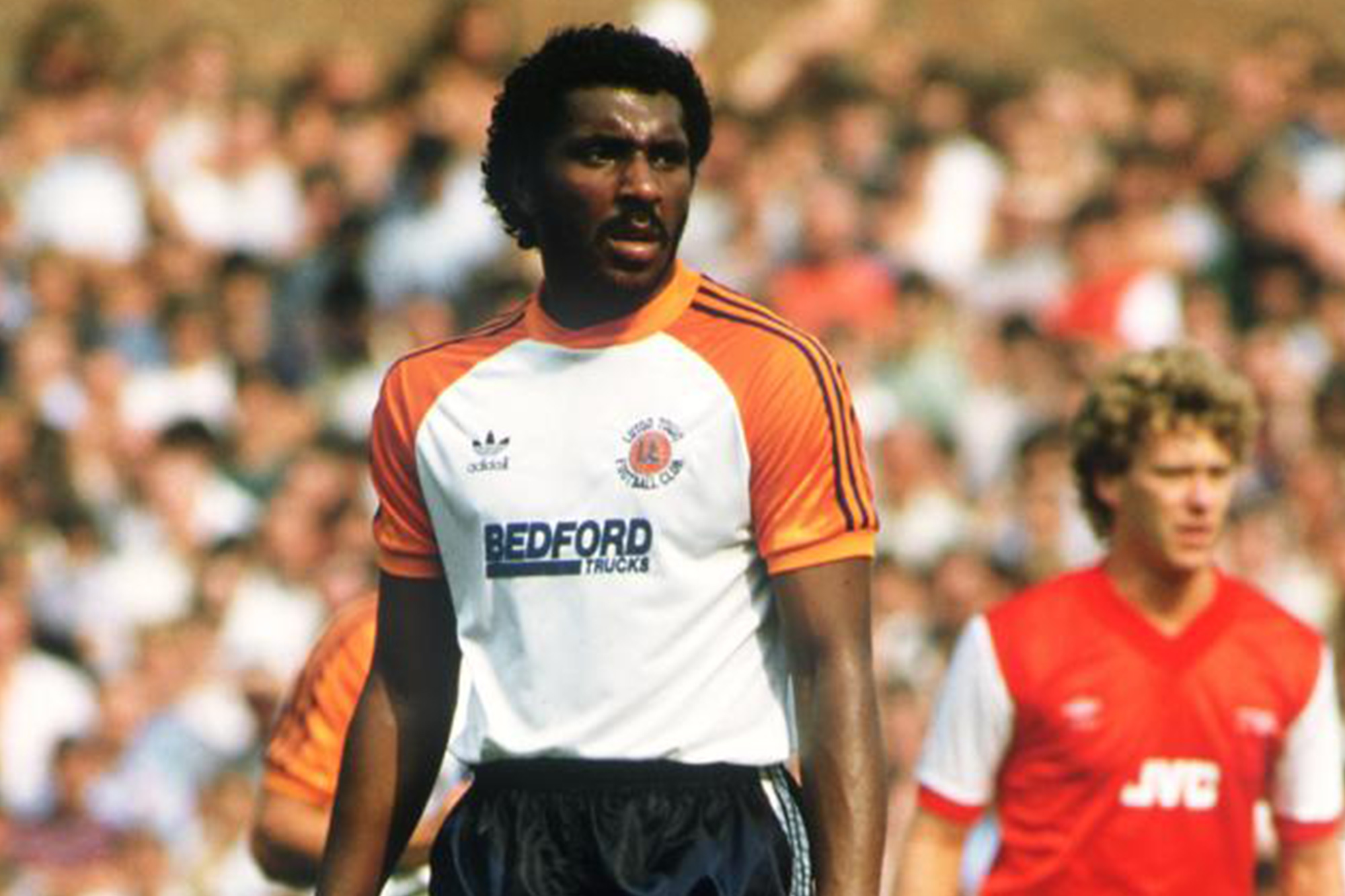
Career highlights
His professional career was launched in the penultimate game of the 1975-76 season against Bristol Rovers. Despite having not trained with the first team, Harry Haslam handed Ricky his debut. The then-17 year old assisted the second goal and bagged the third, in a 3-1 victory. The match marked the start of his legendary status at Luton Town which went on to include a title-winning campaign and promotion to the top-flight in 1981-82, in addition to what is often described by Hatters fans as ‘the greatest day in Luton history’: a 3-2 defeat over Arsenal in the 1988 League Cup final, in which Brian Stein scored a late goal to secure the victory.
Ricky stayed with Luton for 14 years, amassed 508 appearances and scored 65 goals. Thriving at a time when black players were pushing down barriers and dismantling stereotypes within the game, he became just the fourth black player to represent England at the senior level, following the path carved out by Viv Anderson, Laurie Cunningham, and Cyrille Regis before him. Moreover, his selection made him the first British South Asian to ever represent England at the senior level. His international debut took place on 22nd September, 1982 in a European Qualifier against Denmark. Three weeks later, he enjoyed his first and only start, close to home at Wembley Stadium with friends and family watching on. By 1986, Ricky made his third and final cap for England in Cairo, in a friendly against Egypt.
His own career was not without experiences of racism, usually in the form of vile chants. But Ricky Hill never shied away from calling out the ways in which inaction allowed racism to permeate all levels and corners of the game. In fact, since his retirement, he’s challenged the lack of diversity and inclusion at the managerial and coaching levels, even pioneering the equivalent of the NFL’s Rooney Rule for English football to ensure that under-represented candidates secure senior coaching roles. While he’s been given just three coaching opportunities in England in the 30 years since playing, Ricky Hill has an impressive coaching resume: he’s won three Coach of the Year awards; won two professional leagues across America and Trinidad; coached Tottenham Hotspur U19s; and coached Sheffield Wednesday.
Ricky Hill continues to celebrate the challenge and triumph of black players before him, who have opened the doors for a more inclusive and equitable game, while championing the value of diverse lived experiences at all levels.

Ricky's words
‘When I hear the word Brent I immediately think of HOME. This is where I formed who I am today. From attending primary school at Anson Road , then onto John Kelly Boys and Aylestone the foundation of my life was nurtured in those environments. The life long friendships and memories with friends throughout all areas of Brent demonstrates what a special place it is , the many cultures living in harmony (generally) , was another understated quality whilst growing up.
Football allowed me to “dream” , to “aspire” , to “dedicate”, to “apply” my “aspirations “, to “achieve”. Brent provided that platform on which we could “dare to believe”.’
‘I lived in Cricklewood from a toddlers age and Gladstone Park became my “spiritual home”. Looking back I was so lucky to have such a beautiful park in which to explore and play such a variety of sports. Football, Cricket , Golf ( putting green) , Gaelic Football, Tennis, Swimming, Bowls, we’re all featured at the park so whether you were partaking in any one particular sport or not, there was always plenty going on in the park. It was also the short cut from my home to school and I spent many a morning running through Gladstone Park attempting not to be late for assembly.
‘There are so many happy memories of Wembley Stadium. Firstly, Wembley Stadium was my first recollection of a football match . The game on the TV was the Leeds United V Liverpool FA Cup Final , and I had just turned six years old. I remember looking at the television and seeing someone in a white kit that at the time I felt looked like me (in my mind). I asked my older brother what team that was and he said Leeds. Immediately I said “that’s my team”. The player I found out when I was older, was Albert Johanson (RIP), who was a South African left winger and the first Black player I had ever seen. I subconsciously transported my mind into Mr Johanson, believing that I was there at WEMBLEY STADIUM and that “vision” was the spark that ignited the passion and dream that I took forward from that moment onwards in my quest to be a professional footballer, fortunately for me I was grateful and lucky to fulfil my “dream”.
The second memory was in representing the England Senior International team at Wembley Stadium against our greatest rivals at that time West Germany. To walk out at Wembley Stadium being recognised as one of the best eleven players in the country that are able to represent England, is an honour that I had dreamt about many times as a child growing up. For that to then become a reality at the “Mecca of World Football” was gratifying and humbling, as there were so many local people from Brent that had helped me to achieve this accolade, and I know would have been proud to witness that at “our home”, Wembley Stadium.
‘What advice would I give to my younger self? I would probably tell me to look ahead to the long term earlier than I did. By that I mean football whilst being the most wonderful career that anyone could wish to be involved with, is generally short term. If you manage to stay clear of injuries and are able to perform at a consistent level throughout the years, you can hopefully enjoy a relatively long career which can vary from 10, 15, or in extreme situations 20 plus years. That suggests that the greater part of your life will be post your football career, therefore if you are able to begin to plan for life after playing early, then you may hopefully avoid the many pitfalls that you unfortunately encounter once your playing days are over.
‘I guess the key thing when facing adversity of any kind, is to not bury your head in the sand and hoping it will just go away. It’s best if you can to break down exactly what your anxiety or issue may be.
If it is perhaps internal regarding possible attainment or achievement, then my philosophy is that once you have tried your best whatever the outcome you can feel positive, as that is all anyone can ever ask of you. In life you have to try and not be afraid to fail, as even if at times when things don’t work out as planned, you still gain learning lessons that enable you to grow as an individual.’
Did you know?
England representation
Ricky was the 4th black player to represent England at senior level.
Post-playing career
Ricky has won numerous awards and accolades overseas for coaching and management. Last year he penned and was nominated for his book ‘The Love of the Game’.
Young talent
Whilst playing for Luton Town and England, Ricky found time to nurture some of the best young talent in Brent including Rocky Baptiste and Junior Agogo amongst others.
Fathers footsteps
Ricky’s son Shane is a promising footballer and followed his dad to ply his trade in the US.

